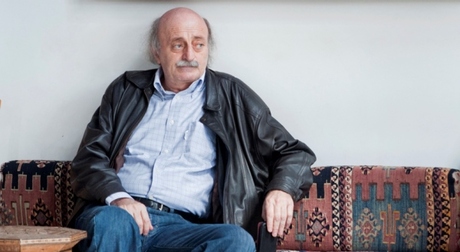Jumblat Revokes Support for Hybrid Law, Calls for Majoritarian Voting System
إقرأ هذا الخبر بالعربية
Head of the Democratic Gathering bloc MP Walid Jumblat said he no longer supports holding the upcoming parliamentary elections based on a hybrid law system as agreed previously with the Lebanese Forces and al-Mustaqbal, as he stressed backing for a majoritarian electoral system, Ad-Diyar daily reported Tuesday.
“A hybrid electoral law that mixes the proportional representation and the winner-takes-all systems is no more acceptable on my part,” said Jumblat, stressing his support for a majoritarian voting system.
“The Taef accord has stipulated that electoral divisions must be determined after reconsidering the number of governorates. Based on that principle, I call for a new administrative division of Mount Lebanon that creates a new governorate for the Chouf and Aley areas,” said Jumblat.
“I do not mind if other governorates were created within Mount Lebanon if necessary,” he added.
Lebanon is divided into eight governorates (mohafazah): Akkar, Baalbek-Hermel, Beirut, Bekaa, Mount Lebanon, Nabatieh, North Lebanon and South Lebanon.
In 2003, the number of Lebanese governorates increased from six to eight. Two governorates were created, Baalbek-Hermel (formerly part of the Bekaa) and Akkar Governorate (formerly part of North Lebanon).
Mount Lebanon includes Aley, Baabda, Chouf, Jbeil (Byblos), Keserwan and Metn districts.
Jumblat remarked that initial reactions as for his suggestion with regard to the election law were generally acceptable, explaining: “The Democratic Gathering has requested meetings with domestic political parties in order to explain our point of view. We are waiting for the appointments to be set.”
Lebanon's political parties are bickering over amending the current election law which divides seats among the different religious sects.
Mustaqbal, the Lebanese Forces and the Progressive Socialist Party have proposed a hybrid electoral law that mixes the proportional representation and the winner-takes-all systems. Speaker Nabih Berri has also proposed a hybrid law.
Meanwhile. Hizbullah has repeatedly called for an electoral law based on proportional representation but other political parties, especially al-Mustaqbal Movement, have rejected the proposal and argued that the party's controversial arsenal of arms would prevent serious competition in regions where the Iran-backed party is influential.
The country has not voted for a parliament since 2009, with the legislature instead twice extending its own mandate.
The 2009 polls were held under an amended version of the 1960 electoral law and the next elections are scheduled for May 2017.
One person one vote, single voting district is the way most advanced democracies elect their representatives. Most of them arrived to this after testing all kinds of proportional and hybrid systems.
Mafia families in panic stations! What to do and how to protect their power... Sectarian policies and fears is their last card!



